This amazing PCOS diet plan to get pregnant contains more protein, vegetables, whole grains, healthy fats, low GI, omega-3, fiber-rich, and chromium-rich foods.
- Early morning drink @ 6:30 am: Amla juice
- Breakfast @ 9 am: Broccoli and cauliflower paratha
- Mid-morning meal @ 11 am: Roasted red pepper and corn soup
- Lunch @ 1 pm: Brown rice, stir-fried spinach, moong sprouts, and curd
- Evening snack @ 4 pm: Roasted channa
- Dinner @ 7 pm: Bajra, moong, and peas khichdi
Best Nutritionist in Bangalore
Consult 19-year-experienced Chief Nutritionist Vasanthi, in person at HSR, Koramangala, Bellandur, Haralur, Electronic city, or online across India.
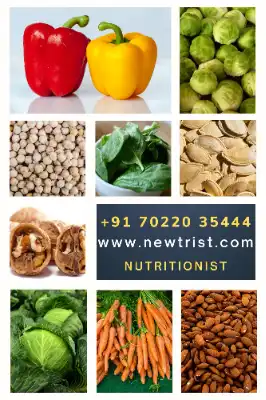
Table of Contents
Nutritional Guide to Achieving Pregnancy
- Include foods with a low-glycemic index to manage the spike in insulin levels. Overeating can lead to insulin resistance and weight gain which can obstruct you from becoming pregnant.
- Consume walnuts, almonds, and several other seeds that contain chromium which is found effective in reducing insulin resistance.
- Eat more vegetables, protein-rich foods, and complex carbohydrates for a fulfilling breakfast.
- Limit the intake of sugary foods which leads to increased blood sugar levels, insulin resistance, and inflammatory issues. Enjoy foods with the taste of natural sugars present in them.
- Processed foods are high in salt, sugars, preservatives, added colors, and additives that may harm the body and hinder the process of pregnancy. Choose freshly available seasonal fruits and vegetables to improve overall health.
- Focus on anti-inflammatory foods like turmeric, cinnamon, leafy vegetables, olive oil, green tea, beans, and lentils. These foods help to manage insulin levels and prevent fatigue and weakness.
- Regular exercise has been shown to reduce PCOS symptoms. A healthy diet and consistent brisk walking and exercise increased menstrual cycle regularity by 50%.
Leading a healthy lifestyle will undoubtedly make you feel better in general and may even make your reproductive treatments more effective.

Low GI PCOS Diet
Foods with a low-glycemic index prevent the sudden spike in insulin levels increasing the chances of becoming pregnant. Low-glycemic index foods lower the risk of weight gain, diabetes, and other illnesses.
- Foods with a low-glycemic index require a longer time to break down and digest and do not rise your sugar levels all of a sudden. It reduces PCOS symptoms and insulin resistance.
- Whole grains, fruits, vegetables, nuts, and legumes are low in GI to be included in the diet plan.
- The most crucial thing is to make sure your diet is full of nutrients, has enough protein, and is low in foods high in sugar.
- High levels of insulin can exacerbate PCOS symptoms. It is important to avoid potatoes, polished white rice, white bread, pasta, sweets, candies, sodas, and sweetened juices.
- Avoid starchy vegetables and include vegetables like cauliflower, broccoli, carrots, bell peppers, mushrooms, beans, gourds, and pumpkin.
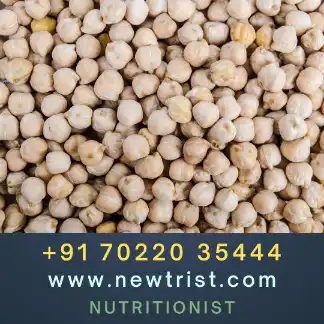
Omega-3 Rich PCOS Diet
Numerous metabolic disorders like insulin sensitivity can be reduced with the intake of foods rich in omega-3 fatty acids. Regulation of the menstrual cycle is made possible by consuming omega-3 foods.
Walnuts, eggs, fish, chia seeds, pumpkin seeds, flax seeds, avocados, and vegetables like spinach, broccoli, and Brussels sprouts are good sources of omega-3 fatty acids that should be consumed by PCOS patients.
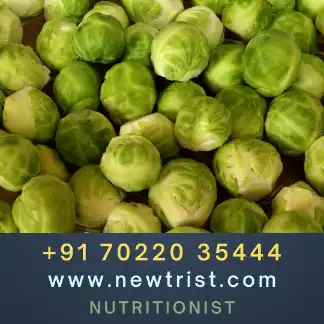
Conceiving with a Fiber-Rich PCOS Diet
High-fiber foods are the best way to lose weight and combat insulin resistance. The fiber content takes time to digest and slows down the release of glucose in the bloodstream.
Nature provides a lot of fiber in a variety of vegetables and fruits which reduces inflammation and helps in managing weight. Fiber also helps to lower your cholesterol levels. Below are some of the high-fiber foods to include on the menu.
- Vegetables – All gourds, tomatoes, cabbage, spinach, broccoli, peas, fresh beans, and leafy greens.
- Fruits – Apples, oranges, guava, pears, kiwi, pomegranate, pineapple, banana, and strawberries.
- Whole grains – Whole wheat, oats, brown rice, quinoa, barley, millet, and buckwheat.
- Legumes – Lentils, kidney beans, rajma, chickpeas, and pulses.
- Nuts – Almonds, walnuts, sunflower seeds, chia seeds, flax seeds, and pumpkin seeds.
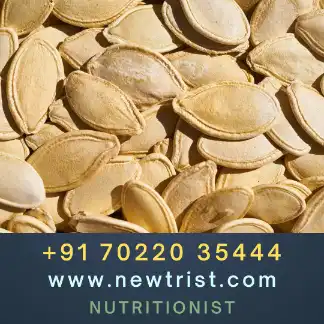
Vitamin D and Calcium-Rich PCOS Diet
Regulation of the menstrual cycle and weight loss is proven to benefit from sources rich in calcium and vitamin D.
Due to their high calcium and vitamin D content, spinach is frequently advised for women with PCOS conditions.
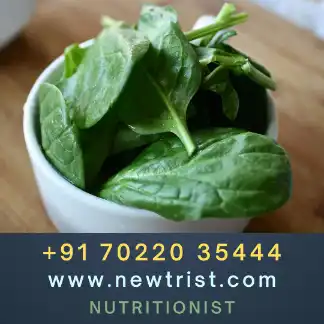
Maximizing Your Chances of Successful Pregnancy with a Chromium-Rich PCOS Diet
In PCOS-afflicted women, chromium picolinate increases glucose tolerance and induces ovulation. It also effectively lowers insulin resistance.
Chromium-rich foods including walnuts, almonds, nuts, and oilseeds should be a part of a PCOS patient’s diet.
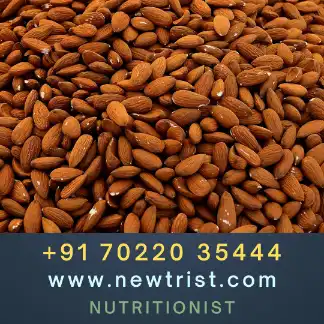
Vegetable-Rich PCOS Diet Plan To Get Pregnant
- Early morning drink @ 6:30 am: Ajwain water
- Breakfast @ 9 am: Jowar upma with vegetables with apple slices
- Mid-morning meal @ 11 am: Healthy Masoor dal and spinach soup
- Lunch @ 1 pm: Millet vegetable pulav with cucumber raita
- Evening snack @ 4 pm: Roasted chickpeas
- Dinner @ 7 pm: Whole wheat dosa with roasted chana dal chutney
Leafy greens and vegetables are a wise choice with fewer calories and high in nutrients. green leafy vegetables contain high levels of B vitamins which is very essential during pregnancy. Vitamin B is found to be deficient in more than 80% of women with PCOS.
Obesity, irregular periods, hirsutism, insulin resistance, and difficulty in getting pregnant are some of the PCOS symptoms associated with the deficiency of this vitamin.
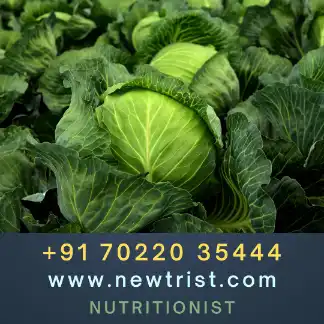
Effective Tips for Managing PCOS Symptoms
- Portion your plate size with more veggies than carbs like rice. Fill more than half of your plate with fiber-rich vegetables and grains for a filling meal.
- Try to eat 2 ½ cups of vegetables/day to reap the benefits of nutrients present in them.
- Show variation in cooking to make your meals attractive and interesting.
- Snack on vegetables and include them in the meals.
- Add your favorite vegetables to your omelet or some leafy greens to your salad and soups.
- Vegetables can be made appealing by trying different cooking techniques and color combinations.
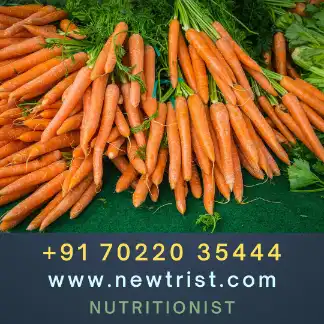
Top Foods for Promoting Hair Growth in Women with PCOS
The hair loss due to PCOS can be reversed with the help of foods and treatments like hormonal balance and further damage to the follicles can be prevented.
Reduction in weight with the help of workouts can cause androgen levels to drop, resulting in a decrease in PCOS-related hair loss.
A healthy diet can help with weight maintenance and gain control over the production of male hormones. Protein is an important vitamin for hair growth as the hair follicles are made up of proteins.
- Eggs are excellent sources of biotin and protein which is essential for hair growth. Biotin is required for the synthesis of keratin, a hair protein. Consuming foods rich in biotin stimulates hair growth.
- Spinach is a rich source of vitamin A, folate, and iron. Hair growth requires vitamin A. About 20% of the daily vitamin A needs are fulfilled by eating 1 cup of spinach. The iron content of spinach helps the red blood cells to carry oxygen to the hair follicles and stimulates them for growth and strengthening.
- Fatty fishes are great sources of omega-3 fatty acids that promote hair growth. Protein, selenium, vitamin B, and vitamin D are some of the other nutrients found in fatty fish.
- Avocados are important sources of vitamin E and healthy fats. Vitamin E supports hair growth. 28% of the vitamin E needs are fulfilled by consuming 1 avocado.
- Besides avocados, nuts are also rich in vitamin E and other nutrients. nuts provide a wide range of health benefits in addition to hair growth.
- The vitamin C content of bell peppers stimulates collagen production which is essential for the strengthening of hair strands. The antioxidant property of bell peppers fights against oxidative stress and protects the hair from falling and damage.
- Beans are excellent sources of zinc that support hair growth and repair cycle. 100 grams of black beans fulfills 14% of the daily zinc needs.
- Seeds are extremely nutritious and provide a wide range of B and E vitamins that maintains hair health. 50% of the daily vitamin E requirements are met by consuming 28 grams of sunflower seeds. Include a wide range of seeds to avail of their benefits and for healthy and lustrous hair.

If you are insulin resistant, please visit PCOS Insulin Resistance Diet Plan with Expert Guidance and Ultimate Weight Loss Diet For PCOS Insulin Resistance pages.
FAQs
Can people with PCOS have successful pregnancies?
Yes, natural conception is possible with PCOS conditions. Dietary modifications and lifestyle changes are some of the simple ways to overcome PCOS symptoms. Women with a healthy weight are more susceptible to getting pregnant than those who are overweight. Healthy ovulation occurs with a reduction in weight for women who are obese which increases the chances of pregnancy.
Does a low GI diet help PCOS?
Low GI diets control the release of glucose in the bloodstream. A steady rise in insulin levels helps in controlling testosterone levels which is responsible for irregular menstruation during PCOS conditions. Low GI diets improve insulin sensitivity and help in losing weight and management of regular periods.
How can a PCOS woman get pregnant naturally?
Losing extra weight and being fit increases the chances of getting pregnant naturally. A healthy diet and improved lifestyle habits like being physically active and stress management pave the way for natural pregnancy. Avoiding processed foods and fast foods promotes natural pregnancies.
How can I increase my chances of getting pregnant with PCOS?
Shifting to nutritious food intake and regular exercise improves the chances of pregnancy. Even a slam reduction in weight may restore a normal ovulation cycle. Maintenance of a healthy weight provides numerous benefits for a mom-to-be woman. Aerobic/cardio exercises 3-4 times a week can help you lose weight and manage stress.
How much vitamin D and calcium should I take for PCOS?
Foods rich in calcium and vitamin D help in the regulation of menstrual cycles and increases the chances of pregnancy. The recommended daily calcium intake for patients with PCOS should be 1200-1500 mg per day and for vitamin D it is 800 mcg. Calcium is a vital ingredient for muscle contractions and vitamin D is essential for the absorption and utilization of calcium. Vitamin D deficiency is common in women with PCOS.
How to treat PCOS with lifestyle?
Intake of a healthy diet with restrictions on sugars and refined carbs, proper weight management, regular exercise, and meditation can help to treat PCOS with lifestyle. Unhealthy fats and sugars lead to insulin resistance and weight gain. A balanced diet consists of foods from various food groups that provide all the essential nutrients for overall health and well-being. Exercises help to burn extra calories and fat and reduces insulin resistance.
Is a high-fiber diet good for PCOS?
A high-fiber diet helps to keep the weight in check and fights against insulin resistance with a slow release of glucose in the blood. Fresh fruits, leafy greens, vegetables, whole grains, legumes, and millet are excellent sources of high-fiber foods. Fiber keeps you full for longer periods reducing the cravings for sugary foods. Aim for at least 25 gm of fiber per day to get maximum benefits.
What are the best low-GI foods for PCOS?
The best low-GI foods for PCOS are oats, kidney beans, chickpeas, carrots, green vegetables, fruits, and lentils. A low GI diet improves insulin sensitivity and maintains the balance of blood glucose levels. A low-GI diet helps to lose weight and planning of healthier meals. Foods with a low GI are often high in fiber that keeps you full for a long time limiting your intake of highly refined foods.
What foods have omega-3 for PCOS?
Foods like fish, olive oil, nuts, seeds, avocados, and omega-3-enriched eggs are excellent sources of omega-3 fatty acids that are beneficial for PCOS conditions. Brussels sprouts, kale, and spinach also provide significant amounts of omega-3 fatty acids. Omega-3 fatty acids provide many benefits like boosting immunity, balancing total cholesterol levels, lowering inflammation, and stabilizing blood sugar levels.
What foods to avoid when trying to get pregnant with PCOS?
Fried foods, refined foods, packaged foods, processed foods, sugary desserts, red meats, and sodas should be restricted when trying to get pregnant with PCOS. These foods can spike up the calories as it contains mostly saturated fats and trans fats. Healthy dietary modifications can help to avoid any kind of risk during pregnancy and premature birth defects.
What is the best diet for PCOS when trying to conceive?
A balanced and nutritious diet that includes mostly plant foods and whole grains is best when you are trying to conceive with PCOS. Fresh green leafy vegetables, fresh fruits, beans, legumes, whole grains, nuts, and seeds provide a wide range of micro and macronutrients required for healthy conception. The Mediterranean diet and DASH diet are the best-preferred diets for getting pregnant with PCOS.
What is the fastest way to get pregnant with PCOS?
A healthy diet and an active lifestyle can aid in easier pregnancy with PCOS. Knowing your ovulation window can help in a fast way to get pregnant. An anti-inflammatory diet with limitations of caffeinated drinks, sugars, and refined carbs, and including beans, herbs, and spices in the diet can make your chances of pregnancy more feasible. Maintenance of a healthy weight plays a main role in pregnancy.
Which vegetable helps to get pregnant faster?
All types of green leafy vegetables, broccoli, kale, carrots, beetroots, and peppers contain essential nutrients required for faster pregnancy. Regular intake of folate-rich foods like dark green leafy vegetables, spinach, lettuce, asparagus, edamame, and green beans helps to improve overall health and get pregnant faster.
Which vegetable is best for PCOS?
Vegetables like fresh leafy greens, bell peppers, tomatoes, cauliflower, broccoli, lettuce, sweet potatoes, green beans, carrot, beetroots, onion, radishes, turnips, cucumbers, yams, and mushrooms are best for PCOS. Vegetables are rich in fiber and antioxidants that prevent obesity and other risk factors of PCOS. Vegetables contain complex carbohydrates and zero fat that aid in effective weight management.